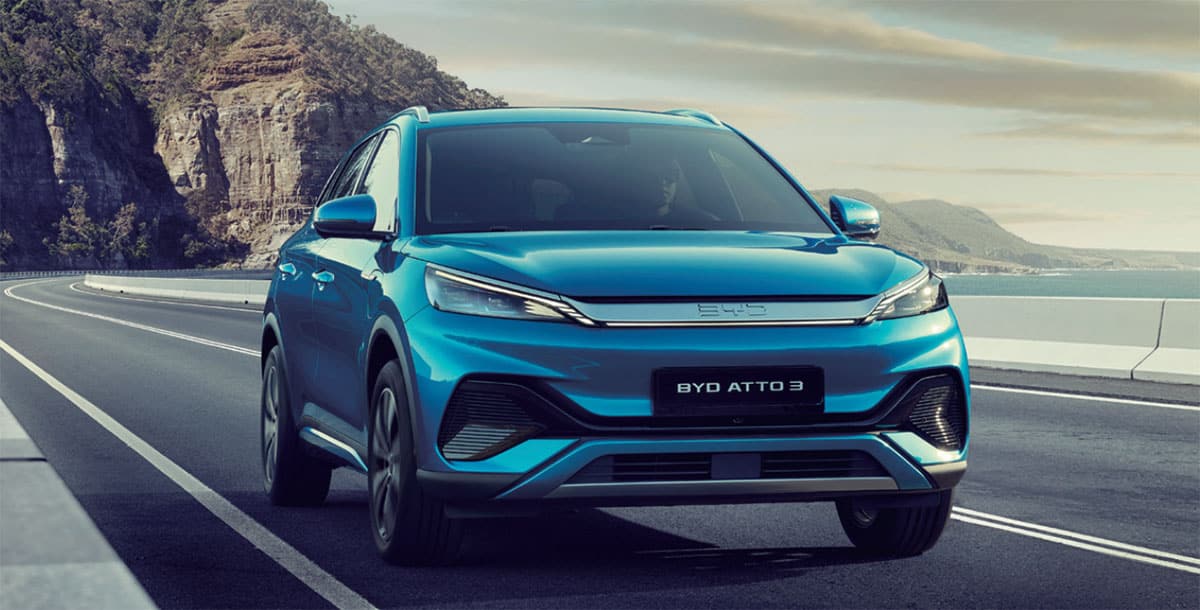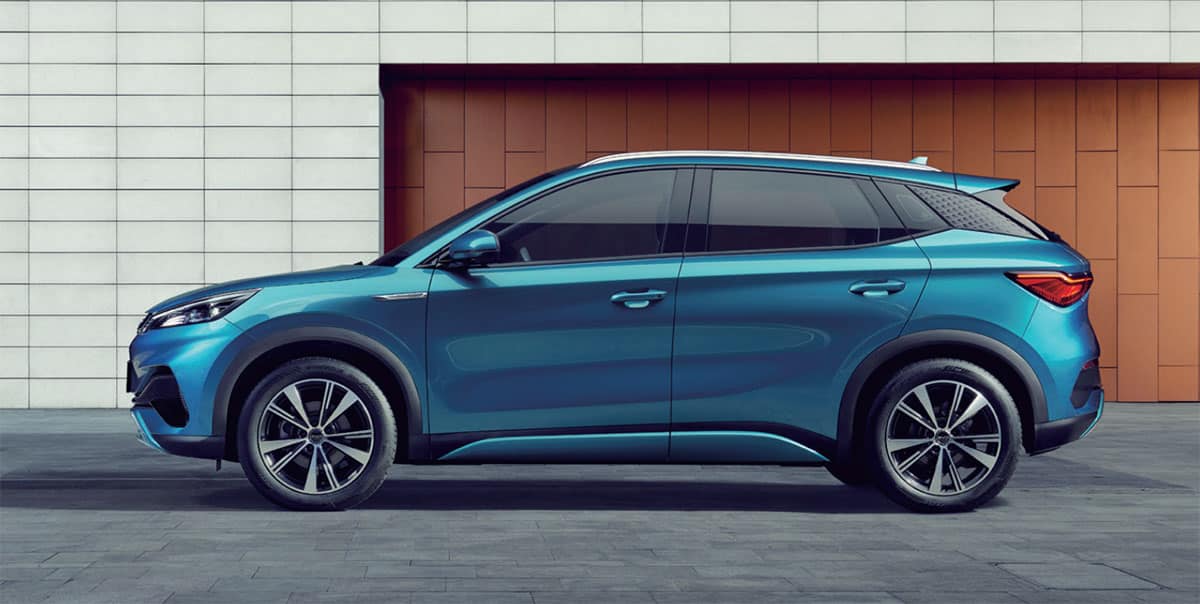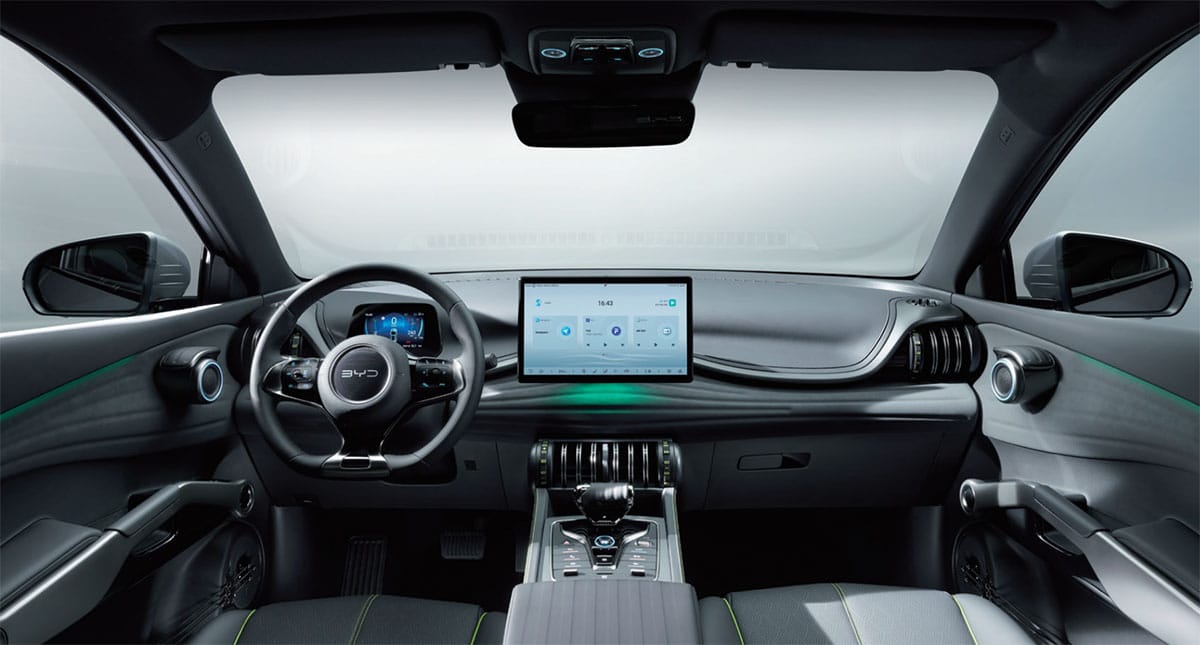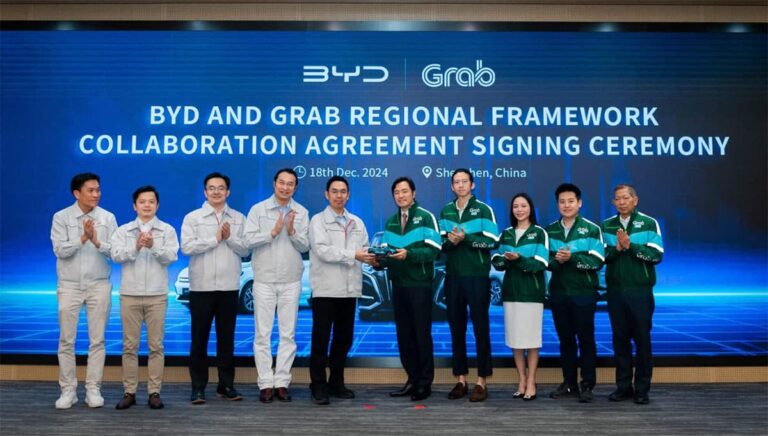- BYD will begin deliveries of the Atto 3 in South Korea in February and plans to launch the Seal electric sedan and Sealion 7 electric SUV there in the second half of this year.
- The Atto 3 is available in two versions in South Korea with a pre-subsidy starting price of 31.5 million won ($21,600).

BYD (HKG: 1211, OTCMKTS: BYDDY) has officially entered the South Korean passenger car market to compete with Hyundai on its home turf.
The Chinese new energy vehicle (NEV) maker introduced the Atto 3 electric SUV (sport utility vehicle) in South Korea today and began accepting pre-orders, with local deliveries expected to begin in mid-February.
The company plans to launch the Seal electric sedan and Sealion 7 electric SUV in South Korea in the second half of the year.
The Atto 3, known as the Yuan Plus in China, was originally launched in February 2022 and is BYD's first global model. The SUV currently has a starting price of RMB 119,800 ($16,340) in China.
The Sealion 7 is known as the Sealion 07 EV in China, and went on sale in May 2024.
The Atto 3 is available in two versions in South Korea -- the base Atto 3 and the premium Atto 3 Plus -- with starting prices of 31.5 million won ($21,600) and 33.3 million won, respectively.
With the South Korean government's electric vehicle (EV) subsidy, the prices of both variants are reduced to about 20 million won.
Both variants of the Atto 3 come standard with BYD blade batteries based on lithium iron phosphate (LFP) chemistry with a capacity of 60.48 kWh, providing a range of about 321 kilometers.
BYD said its LFP battery technology outperforms competitors in terms of safety and performance.
In contrast, South Korean battery makers mainly produce higher-capacity nickel, cobalt and manganese ternary batteries.
The Atto 3 is a single-motor front-wheel drive model based on BYD's e-Platform 3.0 EV platform.
It has a peak motor power of 150 kW and peak torque of 310 Nm and can accelerate from 0 to 100 kilometers per hour in 7.3 seconds.
BYD said it will open 15 showrooms and 11 after-sales service centers in areas including Seoul and Gwangju to help expand its business.
The company's cars sold in South Korea use local servers for data transfer to ease concerns about data security.
BYD first entered the South Korean market in 2016 when it began selling buses on Jeju Island through its local branch.
Earlier this month, BYD announced that the total number of its electric buses in South Korea had reached 1,056, with a cumulative mileage of about 100 million kilometers, achieving carbon dioxide emission reductions of about 120,000 tons.
In 2025, BYD would launch new electric tour buses and more new models in South Korea, it said this week.
The entry into the South Korean market marks BYD's direct competition with local auto giants in another automotive powerhouse.
The company announced its entry into Japan's passenger car market on July 21, 2022, entering the home markets of Toyota, Honda, and Nissan.
BYD started selling EVs in Japan on January 31, 2023 and showcased the Sealion 07 EV in the country last week, with the model's local launch coming later this year.
The company sold 4,272,145 NEVs in 2024, up 41.26 percent year-on-year.
It sold 417,204 units overseas in 2024, up 71.86 percent from 2023.
In a research note earlier this month, Deutsche Bank expected BYD Group to sell 5.52 million units for the full year of 2025, up 29 percent year-on-year.
The bank forecast BYD's 2025 sales in overseas markets to be 800,000 units, up 92 percent year-on-year.
($1 = RMB 7.3317, $1 = KRW 1454.94)


